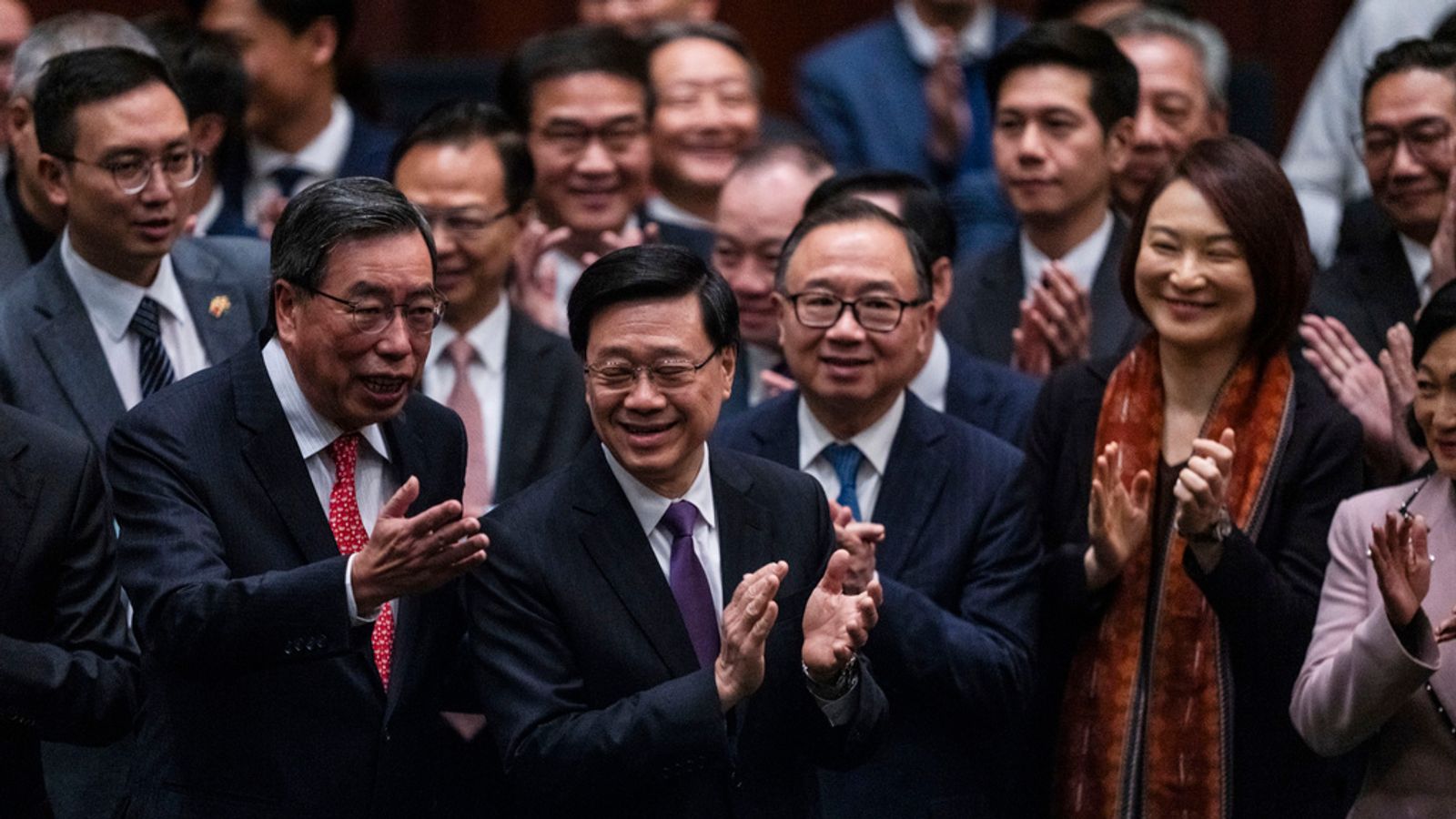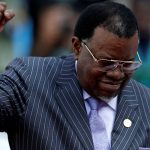Hong Kong’s parliament has unanimously passed a new security law which grants the government more power to quash dissent.
The new legislation threatens sentences of up to life in prison for offences including treason and insurrection, as well as stringent penalties for other offences such as sabotage, external interference and theft of state secrets.
Hong Kong’s Legislative Council, which is packed with Beijing loyalists, says the new law aims to protect national security.
However, the move is widely seen as the latest step in a sweeping political crackdown following large-scale 2019 street protests that challenged China’s rule over the semi-autonomous territory.
Critics fear the new legislation – an expansion on the controversial imposition of the 2019 Beijing’s National Security Law – will further erode civil liberties that Xi Jinping’s government promised to preserve for 50 years when the former British colony returned to Chinese rule in 1997.
Amnesty International described the passing of the new legislation – named Article 23 – as a “crushing blow to human rights in the city”.
“The passing of Article 23 sends the clearest message yet that the Hong Kong authorities’ hunger to accommodate Beijing’s will outstrips any past commitments on human rights,” the group said.
‘Far-reaching implications’
Meanwhile, UK Foreign Secretary, Lord Cameron, said the new law would have “far-reaching implications” on the rights and freedoms of those living and working in Hong Kong.
“The overall impact of Hong Kong’s new national security law is that it will further damage the rights and freedoms enjoyed in the city,” he said in a statement.
“It undermines Hong Kong’s implementation of binding international obligations including the Sino-British Joint Declaration and the International Covenant on Civil and Political Rights.
“I urge the Hong Kong authorities to respect the rights and freedoms enshrined in the Basic Law, uphold its high degree of autonomy and the rule of law and act in accordance with its international commitments and legal obligations.”
Opposition silenced
Hong Kong’s legislature passed the Safeguarding National Security Bill during a special session on Tuesday.
It comes on top of a similar law imposed by Beijing four years ago, which has already largely silenced opposition voices in the city.
After the vote, Hong Kong leader John Lee announced at the council’s chamber that the law would take effect on 23 March.
Legislative Council President Andrew Leung said: “I fully agree with what the Chief Executive said: the sooner the legislation is completed, the sooner national security will be safeguarded.
“With the passage of the Safeguarding National Security Bill, we will be able to effectively safeguard national security, allowing Hong Kong to move forward without worries or burdens, and focus on developing the economy and improving people’s livelihoods.
“Together, we will make Hong Kong a more prosperous and better home for everyone.”
Officials have insisted that the new security legislation balances security with safeguarding rights and freedoms and that it is necessary to prevent a recurrence of protests.
Read more from Sky News:
TikTok CEO appeals to users directly to oppose potential US ban
UK university staff ‘caving into demands from Chinese students’
The city’s government says the new law will only affect “an extremely small minority” of disloyal residents.
Both the Chinese and Hong Kong governments say the initial Beijing-imposed national security law restored stability after the 2019 protests.
Be the first to get Breaking News
Install the Sky News app for free
However, the city’s political scene has changed dramatically since, with many leading activists either being prosecuted or seeking refuge abroad.
Influential pro-democracy media outlets such as Apple Daily and Stand News have also been shuttered.






















